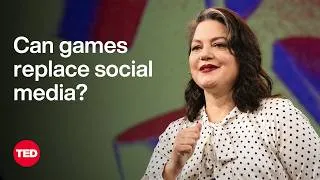请双击下面的英文字幕来播放视频。
翻译人员: Yijing Li
校对人员: Ellie Zhao
时态,指的是语言如何谈论时间,
00:07
Grammatical tense
is how languages talk about time
0
7073
3200
00:10
without explicitly naming time periods
1
10273
2461
而不需要直接说出时间段,
00:12
by, instead, modifying verbs
to specify when action occurs.
2
12734
4280
通过修饰动词,
来具体说明行为何时发生。
00:17
So how many different tenses are there
in a language like English?
3
17014
3470
在一种语言,比如英语中,
有多少种不同时态呢?
00:20
At first, the answer seems obvious:
4
20484
2201
乍一看,答案似乎显而易见:
00:22
there's past,
5
22685
899
有过去时、
00:23
present,
6
23584
801
现在时
00:24
and future.
7
24385
1420
和将来时。
00:25
But thanks to something called
grammatical aspect,
8
25805
2560
但由于“语法体”的存在,
00:28
each of those time periods
actually divides further.
9
28365
3669
以上每种时间段,
实际上有更详细的划分。
00:32
There are four kinds of aspect.
10
32034
2110
语法体共有四种。
00:34
In the continuous or progressive aspect,
11
34144
2411
在持续体或进行体中,
00:36
the actions are still happening
at the time of reference.
12
36555
3330
行为在所指的时间内,一直在持续发生。
00:39
The perfect aspect describes actions
that are finished.
13
39885
4020
完成体用来形容已经完成的行为。
00:43
The perfect progressive aspect
is a combination,
14
43905
2532
完成进行体,是一种组合,
00:46
describing a completed part
of a continuous action.
15
46437
3530
用来形容一个持续行为中,
一个已经完成的部分。
00:49
And finally, there's the simple aspect,
16
49967
2479
最后,是一般体,
00:52
the basic form of the past,
present, and future tense,
17
52446
3499
它是过去、现在、将来时态的基本形式,
00:55
where an action is not specified
as continuous or discrete.
18
55945
3991
它并不具体说明一个行为是否连续。
00:59
That's all a little hard to follow,
so let's see how it works in action.
19
59936
3680
听起来有点难懂,下面我们举个例子。
01:03
Let's say your friends tell you
they went on a secret naval mission
20
63616
3211
比如说,你朋友告诉你,
他们曾进行了一次秘密的海军行动,
01:06
to collect evidence
of a mysterious sea creature.
21
66827
2740
去寻找一种秘密海生动物的迹象。
01:09
The tense sets the overall frame
of reference in the past,
22
69567
3020
总的来说,时态为过去时,
01:12
but within that, there are many options.
23
72587
2479
但是具体地说,有很多种选择。
01:15
Your friends might say a creature
attacked their boat,
24
75066
2592
你的朋友们可能会说,
一只生物袭击了他们的船。
01:17
that's the past simple,
the most general aspect,
25
77658
2959
这就是一般过去时,
最笼统的一种语法体,
01:20
which gives no further clarification.
26
80617
2670
而没有给出进一步的划分。
01:23
They were sleeping when it happened,
27
83287
2290
这件事发生时,他们正在睡觉。
01:25
a continuous process
underway at that point.
28
85577
3432
站在那个时间点看,
这是一个连续进行的过程。
01:29
They might also tell you they had departed
from Nantucket
29
89009
3378
他们还可能告诉你,
他们已经从楠塔基特岛出发,
01:32
to describe an action
completed even earlier.
30
92387
2951
用这种方式,去描述
一个更早完成的行为。
01:35
That's an example of the past perfect.
31
95338
2750
这就是一个过去完成时的例子。
01:38
Or that they had been sailing
for three weeks,
32
98088
3110
或者,他们已经航行了三个星期,
01:41
something that was ongoing
up until that point.
33
101198
3191
这件事截止到那个时间点,一直在发生。
01:44
In the present, they tell you that
they still search for the creature today,
34
104389
4169
现在,他们告诉你,
他们今天还在寻找那种生物,
01:48
their present simple activity.
35
108558
2282
他们的这一活动,属于一般现在时。
01:50
Perhaps they are preparing for their
next mission continuously as they speak.
36
110840
4868
也许,在他们说话的那一刻,
他们在持续地为下一次行动做准备。
01:55
And they have built a special
submarine for it, a completed achievement.
37
115708
4450
他们已为这次活动造了一艘特制
的潜水艇,这是一个已达成的成就。
02:00
Plus, if they have been researching
possible sightings of the creature,
38
120158
4645
另外,如果他们一直在搜寻
这种生物可能的露面机会,
02:04
it's something they've been doing
for a while and are still doing now
39
124803
3464
则表示他们已经做了一段时间,
并且目前仍然在做。
02:08
making it present perfect progressive.
40
128267
3202
这样一来,就是一般现在进行时。
02:11
So what does this next mission hold?
41
131469
2253
那么,下一次行动会怎样呢?
02:13
You know it still hasn't happened
because they will depart next week,
42
133722
4416
下一次行动还未发生,
因为他们将会于下周出发,
02:18
the future simple.
43
138138
1458
也就是一般将来时。
02:19
Your friends will be searching
for the elusive creature,
44
139596
3134
你的朋友们将会在搜寻
那种难以寻找的生物,
02:22
an extended continuous undertaking.
45
142730
3169
这是一个长期的持续行动。
02:25
They tell you the submarine will have
reached uncharted depths a month from now.
46
145899
4618
他们告诉你,从现在起一个月后,
潜水艇将会已经达到一个新的深度。
02:30
That's a confident prediction
47
150517
1472
这是一个很有信心的预测,
02:31
about what will be achieved
by a specific point in the future,
48
151989
3730
说的是在未来某一个确切
的时间点,将会达成何种成就,
02:35
a point at which they
will have been voyaging for three weeks
49
155719
3340
在那个时间点,
他们将会已经航行了三周,
02:39
in the future perfect progressive.
50
159059
2350
这就是将来完成进行时。
02:41
The key insight to all these
different tenses
51
161409
2600
对于这些不同的时态来说,
很关键的一点,
02:44
is that each sentence takes place
in a specific moment,
52
164009
3622
就是每一个句子,
都产生于一个特定的时刻,
02:47
whether it's past, present, or future.
53
167631
3269
无论这一刻在过去、现在还是将来。
02:50
The point of aspects is that they tell you
as of that moment
54
170900
3259
语法体的关键,就在于它们告诉你,
在那一个特定时刻,
02:54
the status of the action.
55
174159
2210
行为的状态是怎样的。
02:56
In total, they give us twelve
possibilities in English.
56
176369
3690
在英语中,这些排列组合
共有十二种可能性。
03:00
What about other languages?
57
180059
1881
那么其他语言如何呢?
03:01
Some, like French,
58
181940
1279
有的语言,比如法语、
03:03
Swahili,
59
183219
861
斯瓦希里语
03:04
and Russian
take a similar approach to English.
60
184080
2989
和俄语,与英语类似。
03:07
Others describe
and divide time differently.
61
187069
2742
另一些语言,描述和划分时间
的方式则有所不同。
03:09
Some have fewer grammatical tenses,
like Japanese,
62
189811
3168
有的语言时态更少,比如日语,
03:12
which only distinguishes past
from non-past,
63
192979
3751
只区分过去时和非过去时。
03:16
Buli and Tukang Basi,
64
196730
1752
古法文和图康伯西群岛的语言,
03:18
which only distinguish future
from non-future,
65
198482
3260
只区分将来时和非将来时。
03:21
and Mandarin Chinese
with no verb tenses at all, only aspect.
66
201742
4450
而中文普通话则完全没有
动词时态,只有语法体。
03:26
On the other hand, languages like Yagwa
split past tense into multiple degrees,
67
206192
5430
另一方面,有的语言,比如火地群岛的语言,
将过去时划分为多种程度,
03:31
like whether something happened hours,
weeks, or years ago.
68
211622
3980
也就是某件事发生于几小时前、
几周前还是几年前。
03:35
In others, tenses are intertwined
with moods that can convey urgency,
69
215602
3990
在另外一些语言中,时态和语气相交织,
而语气可以传达事件的紧急性、
03:39
necessity,
70
219592
1114
必要性、
03:40
or probability of events.
71
220706
2196
或可能性。
03:42
This makes translation difficult
but not impossible.
72
222902
3064
这就让翻译变得很难,
但也不是不可能。
03:45
Speakers of most languages without certain
tenses can express the same ideas
73
225966
4249
大多数无特定时态语言的使用者,
也可以表达同样的意思,
03:50
with auxiliary words,
like would or did,
74
230215
3552
他们会运用助动词,
比如”将会“或者”曾经“,
03:53
or by specifying the time they mean.
75
233767
2109
或者具体说明他们想表达的时间。
03:55
Are the variations
from language to language
76
235876
2209
不同语言之间的差异,
03:58
just differents ways of describing
the same fundamental reality?
77
238085
3907
仅仅是对同一个事实
有着不同描述方式吗?
04:01
Or do their diverse structures reflect
different ways of thinking about the world
78
241992
4624
还是说,这些多元的结构,
反映了对世界的不同思考方式,
04:06
and even time itself?
79
246616
1721
甚至是对时间本身的思考方式?
04:08
And if so, what other ways
of conceiving time may be out there?
80
248337
3749
如果是这样,会不会还有
其他表达时间的方式呢?
New videos
关于本网站
这个网站将向你介绍对学习英语有用的YouTube视频。你将看到来自世界各地的一流教师教授的英语课程。双击每个视频页面上显示的英文字幕,即可从那里播放视频。字幕会随着视频的播放而同步滚动。如果你有任何意见或要求,请使用此联系表与我们联系。







